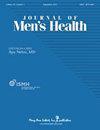沙特阿拉伯泌尿科医生中的冒名顶替现象
IF 0.6
4区 医学
Q4 Medicine
引用次数: 0
摘要
冒名顶替现象(IP)是一种持续的无法相信自己的成功是应得的,或者是由于自己的努力或技能而合法获得的。它与倦怠、焦虑和抑郁有关,并会对受影响个体的生活产生负面影响。本研究旨在确定沙特阿拉伯泌尿科医生中IP的患病率。一项横断面研究于2022年11月至12月在沙特阿拉伯的执业泌尿科医生和培训泌尿科医生中进行。通过电子邮件向沙特卫生专业委员会数据库中的所有注册泌尿科医生分发了一份自我管理的问卷,其中包括有关社会人口特征和Clance冒名顶替现象量表(CIPS)的问题。共有155名泌尿科医生(143名男性和12名女性)参加了这项研究。绝大多数泌尿科医生(44.5%)是咨询医师,冒名顶替现象在本研究中的发生率为27.7%。近一半(49.7%)的泌尿科医生表现为中度,23.9%的泌尿科医生表现为重度,20.6%的泌尿科医生表现为轻度。只有5.8%的泌尿科医生表现出这种现象的严重程度。这一现象在接受培训的患者中更为普遍(p = 0.010),而在泌尿外科亚专科患者中患病率较低(p = 0.016)。泌尿科医师冒名顶替现象的发生率为27.7%。它更常见于住院泌尿科医生,而那些有一个亚专科的泌尿科医生不太可能受到这种现象的影响。本文章由计算机程序翻译,如有差异,请以英文原文为准。
Impostor phenomenon among urologists in Saudi Arabia
Impostor phenomenon (IP) is the persistent inability to believe that one’s success is deserved or has been legitimately achieved due to one’s efforts or skills. It is associated with burnout, anxiety and depression and can negatively impact the lives of the affected individuals. This study aimed to determine the prevalence of IP among urologists in Saudi Arabia. A cross-sectional study was conducted among practicing urologists and urologists-in-training in Saudi Arabia between November and December 2022. A self-administered questionnaire comprising questions on the sociodemographic characteristics and the Clance impostor phenomenon scale (CIPS) was distributed through email to all registered urologists in the Saudi Commission for Health Specialties database. A total of 155 urologists (143 men and 12 women) were enrolled in this study. The majority of the urologists (44.5%) were consultants, and the prevalence of the impostor phenomenon in this study was 27.7%. Nearly half of the urologists (49.7%) presented moderate levels of the phenomenon, 23.9% of the urologists demonstrated high levels, and 20.6% presented low levels. Only 5.8% of the urologists showed intense levels of the phenomenon. The phenomenon was significantly more prevalent among those in training (p = 0.010) and less prevalent among those with a subspecialty in endourology (p = 0.016). The prevalence of the impostor phenomenon among urologists was 27.7%. It was more commonly seen in resident urologists, and those with a subspecialty in endourology were less likely to be affected by this phenomenon.
求助全文
通过发布文献求助,成功后即可免费获取论文全文。
去求助
来源期刊

Journal of Men's Health
Medicine-Urology
CiteScore
0.70
自引率
28.60%
发文量
153
审稿时长
10 weeks
期刊介绍:
JOMH is an international, peer-reviewed, open access journal. JOMH publishes cutting-edge advances in a wide range of diseases and conditions, including diagnostic procedures, therapeutic management strategies, and innovative clinical research in gender-based biology. It also addresses sexual disparities in health, life expectancy, lifestyle and behaviors and so on. Scientists are encouraged to publish their experimental, theoretical, and descriptive studies and observations in as much detail as possible.
 求助内容:
求助内容: 应助结果提醒方式:
应助结果提醒方式:


